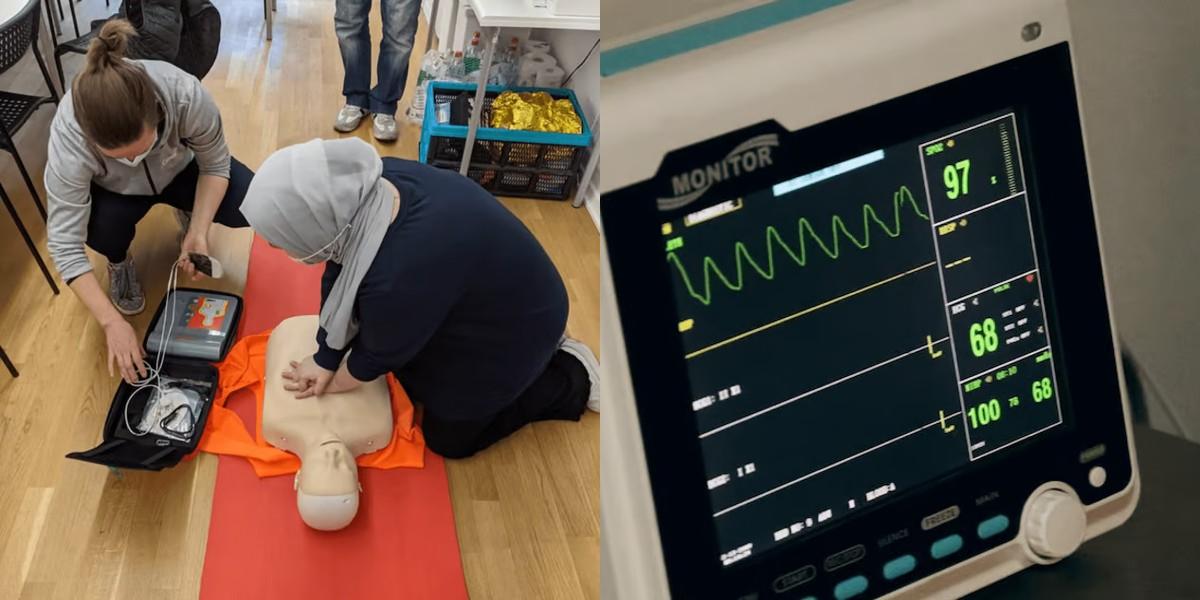CPR-BLS vs EKG

Key Points:
- CPR-BLS focuses on life-saving techniques, while EKG deals with monitoring and interpreting heart activity.
- CPR-BLS pay can vary, while EKG technicians typically earn higher salaries.
- CPR-BLS jobs are widely available, while EKG technician positions may be more specialized.
- CPR-BLS training is often shorter and can be done online, while EKG training requires more in-depth, in-person education.
- CPR-BLS training is generally more affordable and faster, while EKG training can be more expensive and take longer.
Before we delve into the details, let's have a brief introduction to CPR-BLS and EKG.
CPR-BLS stands for Cardiopulmonary Resuscitation - Basic Life Support. It is a set of life-saving techniques performed in emergency situations when a person's heart has stopped beating or they are not breathing. CPR-BLS includes chest compressions, rescue breaths, and defibrillation, if necessary. This emergency procedure aims to restore blood circulation and oxygen supply to the brain and other vital organs.
EKG, on the other hand, stands for Electrocardiogram. It is a medical test that records the electrical activity of the heart. EKGs are used to diagnose various heart conditions, such as arrhythmias, heart attacks, and heart disease. The test involves placing electrodes on the patient's chest, arms, and legs to measure the electrical signals produced by the heart.
CPR-BLS vs EKG: Career Outlook and Salary
Both CPR-BLS and EKG professionals are in demand in the healthcare industry. Here is an overview of the career outlook and salary for each:
CPR-BLS Professionals:
- Job opportunities for CPR-BLS professionals can be found in various healthcare settings, including hospitals, clinics, and ambulance services.
- The demand for CPR-BLS professionals is expected to grow due to an aging population and increased awareness of the importance of immediate life-saving interventions.
- According to the Bureau of Labor Statistics (BLS), the median annual wage for Emergency Medical Technicians (EMTs) and Paramedics, who are trained in CPR-BLS, was $35,400 in May 2020.
EKG Technicians:
- EKG technicians can find employment in hospitals, diagnostic laboratories, and cardiology clinics.
- The demand for EKG technicians is also projected to increase, driven by the aging population and the prevalence of heart diseases.
- According to the BLS, the median annual wage for Cardiovascular Technologists and Technicians, which includes EKG technicians, was $59,410 in May 2020.
Final Thoughts
In conclusion, CPR-BLS and EKG are both essential components of healthcare, but they serve different purposes and require distinct skill sets. CPR-BLS focuses on life-saving interventions in emergency situations, while EKG is a diagnostic test for assessing heart conditions.
If you are interested in a career in healthcare and enjoy hands-on patient care, CPR-BLS may be the right choice for you. On the other hand, if you have an interest in technology and enjoy working with medical equipment, becoming an EKG technician could be a rewarding career path.
Whichever path you choose, both CPR-BLS and EKG offer opportunities to make a significant impact on patients' lives and contribute to the field of healthcare.
Dreambound's programs extend across various locations. Visit these blogs for a thorough exploration of the two vocations, encompassing details on their requirements and insights on how to get started:

Pia Yapjoco is part of the school growth and sales team at Dreambound. She helps facilitate school partnerships that expand educational opportunities for aspiring students in allied health and other trades. Beyond work, she curates her pup's Instagram, hunts for hidden coffee gems, and escapes into cozy gaming.




